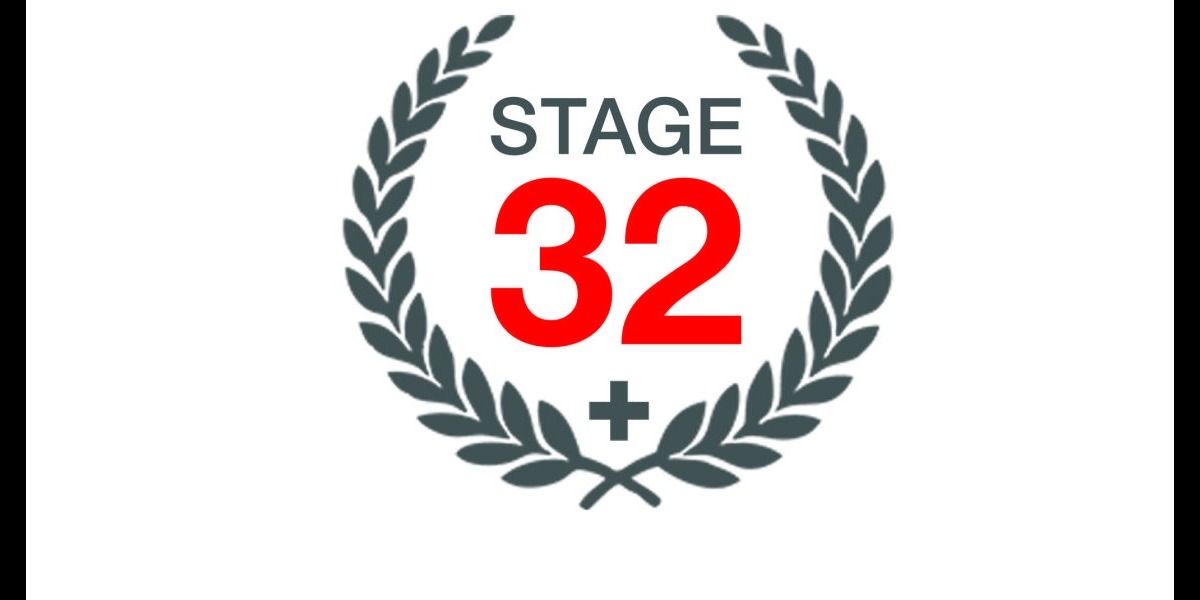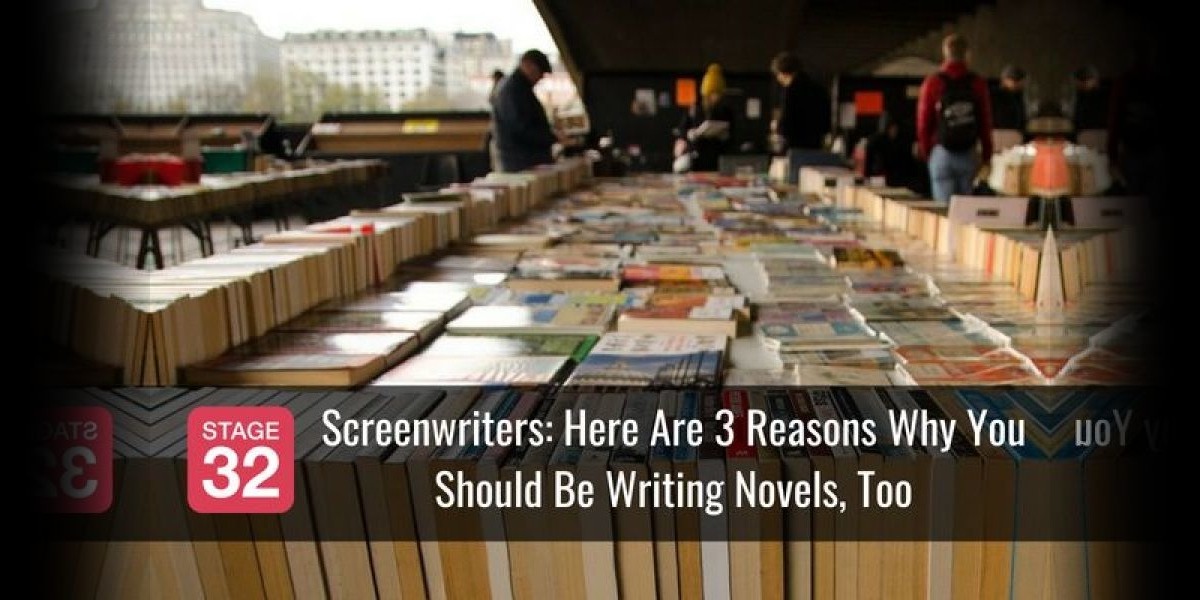Screenwriters: Here Are 3 Reasons Why You Should Be Writing Novels, Too
If you’re a feature screenwriter like me, the following are probably your mantra:
- Economy with words.
- White space on the page.
- 120 pages or less.
As mantras go, it’s not going to set the world on fire, but it works. It takes some getting used to. Writers, by their very nature, love words and often have a tendency to waffle on, using very long sentences to describe something that actually you could’ve described perfectly well in three words, but where’s the fun in that? You’ve probably trained yourself NOT to write sentences like that last one, so the thought of writing a novel (so many words!) is quite possibly enough to blow your mind.
But there are some extremely good reasons why you – yes, YOU – should write one.
Extremely Good Reason No 1: Opportunity Knocks!
Did you know that there are between 600,000 and 1,000,000 novels published every year in the U.S. alone? Compare that to the number of movies made each year. (According to IMDB, 2,577 on average since 1900.)
 600,000 – 1,000,000 books are published in the U.S. alone every year. That’s a whole lot of books.
600,000 – 1,000,000 books are published in the U.S. alone every year. That’s a whole lot of books.
Now ok, not all of those novels are going to be best sellers, but then not all of those films will make it into a theatre either. And even with the rise of VOD, many of those movies won’t find an audience. But the sheer number of publishing opportunities for novels (whether it’s through a traditional publisher, self-publishing, or audio-publishing) means that the odds of your work finding an audience must be appreciably higher than if you’re putting all your creative eggs into the movie basket.
The explosion in digital and self-publishing means there’s more novel content out there than ever before. But that doesn’t mean there’s no room at the inn for even more books. Readers are obsessive lunatics. (I say this as a reader myself). We love books. We talk about them endlessly in social media book clubs. (Reese Witherspoon’s Instagram book club alone has nearly half a million members.)
 Reese Witherspoon's online book club has close to 500,000 followers.
Reese Witherspoon's online book club has close to 500,000 followers.
We love the feel and smell of hardbacks and paperbacks and we find it almost impossible to pass a bookshop. We download hundreds of eBooks onto our Kindles so we can carry a whole library around with us and dip into it while we’re waiting for the kids to come out of school. We listen to audio books during our morning commute, transporting ourselves not just to our jobs, but to far away places, but to exotic islands, crime scenes, and romantic cities, too.
We are a massive audience, and we’re hungry.
But it’s not just the readers who have an appetite for new material. Unlike screenwriting agents who are notoriously reluctant to take on new clients, literary agents suffer terribly from FOMO. They don’t want to miss the next J.K. Rowling. They all want to be the one who finds the next Girl On The Train. Just Google "literary agents," and you'll find there are hundreds out there. None (or very few) of their websites will say NO UNSOLICITED MATERIAL. Try that exercise with screenwriting agents and see how far you get.
Publishers are often happy to read material from unrepresented writers, so nobody’s taking their 15% commission if you get yourself a deal. And that’s before we even think about self-publishing, which with the likes of Amazon is easier (and cheaper) than ever before. Just please, please, get someone to proofread your work if you decide to go this route.
And then there are contests. Screenwriting contests can be a great way to get your work in front of industry professionals. There’s no doubt that placing in the Academy Nicholls or Page contests can open doors. They can also be a colossal waste of money. Screenwriting contests are generally expensive to enter and there’s no guarantee that winning one will get your screenplay made or even optioned.
Prose contests tend to be smaller, cheaper, or free, and publication for the winning entry (or entries) is usually part of the prize. There are thousands of contests out there for novels and short stories, and most of them don’t get anything like the roughly 7000 entries the Page Awards do. Your odds of winning are better and there’s a much higher chance of getting published as a result.
As if that wasn’t enough, many novel contests are run by big companies with massive promotional budgets which means that if you win, your novel won’t be languishing on the online equivalent of the bottom shelf at a Barnes & Noble discount outlet – it’ll be marketed to within an inch of its life and will actually shift some copies.
So as you can see, there are opportunities aplenty out there for the budding novelist.
Extremely Good Reason No 2: Existing IP is The New Black
Movies are incredibly expensive beasts to make. Even low budget indies involve financial risk and investors are reluctant to sink their hard-earned cash into projects without an experienced writer, director, or producer, because there is so little likelihood of a return.
What does that mean for the new screenwriter? If you want to get something - anything - made, then as a newbie you’ll probably have to write a movie that can be shot on the lowest of budgets.
That car chase you wanted? It could be shot on bicycles instead.
The herd of elephants in Act Two has been replaced by your granny’s cat.
And that amazing set piece where the spaceship swoops down and rescues a cast of two thousand extras fleeing the tsunami which is wiping out the whole of downtown Manhattan? Yeah, that’s gone, too.
Or you can keep it – and add even more amazing stuff – in your novel. Novels cost relatively little to produce, so publishers are far less risk averse than movie studios. And a novel set in outer space costs exactly the same to print or upload as one set in your own backyard.
So you write the story you want to write. The one no studio would dare even touch because it would be such an expensive risk. Only you publish it as a novel and (maybe) it sells a few copies. Maybe it sells more than a few.
Suddenly the studios see it not as a massive, money-hemorrhaging gamble, but a potential payday. The novel has proved there’s an audience out there, and they’re just waiting for the film adaptation.
The Martian, Gone Girl, Jack Reacher, Lord of the Rings – big movies that sprung from existing source material.
 Lee Child's 'Never Go Back' was released as a film in 2016 and starred Tom Cruise.
Lee Child's 'Never Go Back' was released as a film in 2016 and starred Tom Cruise.
Producers and studios alike are crying out for existing IP (intellectual property) because they know before they even cast it that it’s as close to a sure-fire hit as a movie ever can be. Book-loving Reese Witherspoon’s production company, Hello Sunshine, have already adapted bestsellers Wild and Big Little Lies for the screen and recently acquired the film rights for Gail Honeyman’s debut novel Eleanor Oliphant is Completely Fine.
But it’s not just a published IP that they’re interested in. In 2016, Ridley Scott’s company, Scott Free, joined forces with the Launch Pad Manuscript Competition to actively look for an unpublished novel to option. We know Disney movies are all about the merch (last year Disney made 53 billion dollars from toys), but other ‘grown up’ movies are keen to get in on the retail side of things too, with the book of the film being the easiest and most obvious merchandising opportunity.
They say money talks, so it’s as well to learn the language. Writing a novel could make the movers, shakers, and money men see you as less of a risk, and you get to keep the spaceship in.
 Stanley Kubrick’s ‘2001: A Space Odyssey’ was adapted from the bestselling novel by science fiction writer Arthur C Clarke.
Stanley Kubrick’s ‘2001: A Space Odyssey’ was adapted from the bestselling novel by science fiction writer Arthur C Clarke.
Extremely Good Reason No 3: No Story Left Behind AKA It’s Easier Than You Probably Think
I was once like you, you know. Shying away from such a mammoth task. A novel is classified as at least 50,000 words, although there are some publishers out there that won’t look at anything less than 75,000. That's a hell of a lot of words. And the very thought of it was enough to drive me to drink and drug. Well, tea and biscuits (I’m British through and through.) 50,000 words?! Get outta here.
So I cheated.
Flashback to August 2015. My first trip to Venice. I've always wanted to go there, and the minute the ferry from the mainland turned into the Grand Canal, I fell in love with the place. It’s an easy city to lose yourself in, both mentally and physically.
I came straight home and wrote a screenplay set there. It got longlisted by the BBC Comedy Writers Room but it wasn’t quite right, even after I went back to Venice the next year for more inspiration. I wasn’t ready to let it go, but I wasn’t sure what to do with it either. So I let it sit, untouched but not forgotten, for about a year until an author friend who’d enjoyed reading the script suggested I turn it into a novel.
I’d tried to write novels before, and would normally fizzle out after Chapter 3, but having a script to work from meant I already had the mother of all outlines to guide me. After resisting for so long, the first draft took me less than a month to write.
In the spirit of ‘what the hell,’ I entered it for the inaugural Audible UK New Writing Grant (Crime Edition), then promptly forgot about it because nobody wins with the first draft of their first novel. In March 2018, Audible contacted me to say Dead in Venice was through to the final three. Amazed, I sent them the latest draft, but I was still pretty certain I wouldn’t win. And – I didn’t. (Wou weren’t expecting that, were you?)
But I did get a book deal with Audible, which was officially announced and celebrated at this year’s Theakstons International Crime Writing Festival in Harrogate. Plus I got to have my photo taken with Lee Child in a moment of sheer joyous fan-girling. I’m still hoping to see Dead in Venice on screen one day (Reese, if you’re interested - ?) But for now, I’m over the moon that my story is finally getting out there.
Most (probably all) screenwriters have scripts lying around that they just don’t know what to do with. They love them, but they know deep down that they probably won't get made. Either because of budget constraints, subject matter, or because it needs more than 90 pages to do the story justice. We will never delete them because we love them. We just don’t know where they fit.
They’ll fit into a novel. Trust me. It may sound daunting but once you get started, writing prose is incredibly freeing. And if you’re rescuing and recycling an existing script, then you already know the characters; you’ve done the research. I went from being terrified of writing a novel to loving it. In fact I’ve already moved on to the next one and yes, it’s an adaptation of another script. No story left behind.
So what have you got to lose? Nobody says you can only write scripts, or you can only write novels, so why not do both? I’m still taking on the movie world, but now I’m doing it in a pincer-like, double-barrelled, attacking-on-as-many-fronts-as-possible manoeuvre. Maybe you should too?

Fiona Leitch is a screenwriter and novelist living on the south coast of England.
She aspires to write like the lovechild of Nora Ephron and Richard Curtis and enjoys
freaking out her cats by trying out dialogue on them. Her debut novel ‘Dead in Venice’
is out in audio book form on 6th September, available to order now exclusively from
Audible.com. More information can be found at www.fionaleitch.com
Like this blog post? Please share it on social media (Facebook, Twitter, LinkedIn, email etc) by using social media buttons at the top of the blog. Or post to your personal blog and anywhere else you feel appropriate. Thank you.
As always, we welcome thoughts and remarks on ANY of the content above in the Comments section below...
| A Full Week of Stage 32 Events at Raindance. All Are Invited! |
| Gardening, Surfing, and Marathon Running: Metaphors for an Acting Career |
Search Stage 32 Blog
There are now 3693 blog posts for you to enjoy. Search them all by tags below.
Acting, Advice, Cinematography, Coffee & Content, Composing, Contests, Distribution, Featured, Filmmaking, Financing, Inspirational, Networking, Producing, Screenwriting, Success Stories, Tips, Trending,Relevant Tags
Recommended Articles

3 Ways Acting Has Helped Me Become A Better Writer

Coffee & Content: When They Double Down, You Triple Down!

Coffee & Content: How Do You Overcome Negativity?

Setting Intentions for the New Year: Creating My Mid-Life Peace (No Crisis Welcome!)

Mapping Out a Multi-Season Story Part 2: Where Do You Get Ideas For This Much Story?

Why Write About Your Experiences Through Fantastical Lenses?

Happy Holidays from the Stage 32 Team!

St. Pete-Clearwater Film Commission Partners with Stage 32!

Celebrate the November 2024 Stage 32 Community’s Successes







